Ex-Tehran Mayor Brands Presidential Elections 'Stand-up Comedy'
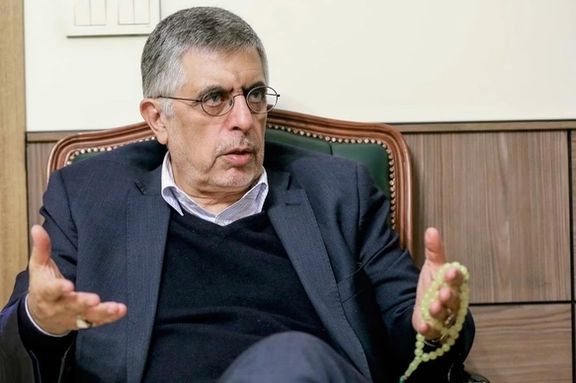
Gholamhossein Karbaschi, former mayor of Tehran, likened the mass registrations for the Iranian presidential election to a "stand-up comedy."

Gholamhossein Karbaschi, former mayor of Tehran, likened the mass registrations for the Iranian presidential election to a "stand-up comedy."
Karbaschi, a prominent figure in the centrist, pro-reform Executives of Construction Party, said, "They [the government] have turned the country's main symbol of democracy into a stand-up comedy," amid the sham elections which will ultimately nominate someone chosen by the country's Supreme Leader.
Karbaschi, a close ally of former President Mohammad Khatami, was previously arrested and imprisoned on corruption charges in a case that the New York Times described as "widely seen among moderates as a politically motivated attack" by conservatives and hard-liners. It was perceived as an effort to suppress Khatami's reformist agenda.
Echoing Karbaschi's sentiments, Saeed Hajarian, a reformist theorist, also voiced his concerns over the superficiality of the candidate registration for the upcoming presidential election.
On X, he criticized the absence of substance behind the spectacle: "A neat suit, a few slow steps, showing the ID card, a few camera flashes... That's it! They talk neither of a coherent plan nor of the potential members of an effective cabinet."
The debacle comes in the wake of the sudden death of President Ebrahim Raisi in a helicopter crash on May 19, which precipitated the current snap election set for June 28. With registration ongoing since Thursday and ending Monday, nearly 90 percent of the candidates hail from the pro-regime camp.
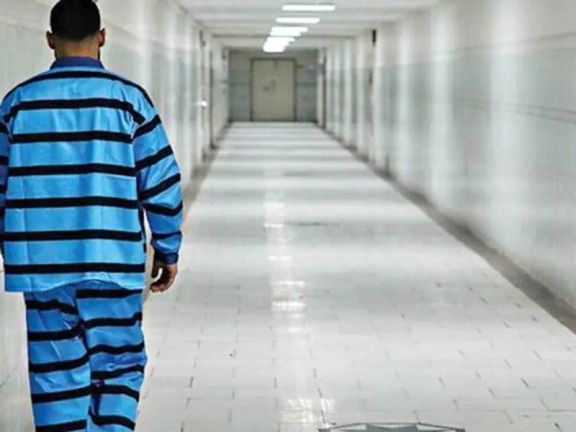
Adham Naroui, a political prisoner facing the death penalty in Iran's Zahedan Prison, attempted suicide on Thursday amid fears of imminent execution.
According to Haalvash, a news outlet covering the Sistan-Baluchestan province, Naroui was rushed to a local hospital after overdosing on sedatives. He is the latest prisoner to attempt suicide amid Iran's escalating killing spree, last year alone, over 850 Iranians executed.
Naroui, arrested by security forces in June 2021 in Lashar, and later transferred to Zahedan, was charged along with Mohammad Zeinoddini in October 2020. In 2022, both were convicted of "waging war through armed action" and their death sentences were upheld by the Supreme Court in November 2023.
They were accused of murdering three members of the Revolutionary Guard during an operation, charges they have repeatedly denied, claiming they played no role in the incident.
The incident is part of a broader pattern of neglect and abuse in Iranian prisons, which the US-based Human Rights Activists News Agency (HRANA) highlights in its annual report saying between March 2023 and March 2024, at least six prisoners died due to illness, twenty committed suicide, and eight were murdered in custody.
The report details physical torture, denial of medical services, solitary confinement, forced confessions, lack of access to chosen lawyers, and inappropriate detention conditions endured by political prisoners.
Iran has consistently failed to acknowledge responsibility for the deaths and suffering of political prisoners caused by torture, lack of medical care, and other forms of systemic abuse.
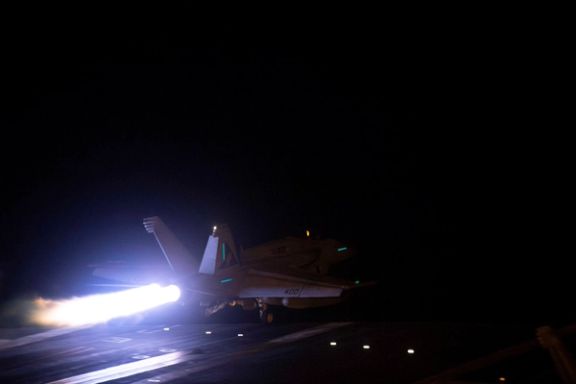
A British think-tank has claimed the UK should launch direct attacks on Iran after current international policy and sanctions have “failed spectacularly”.
According to The Henry Jackson Society, the West’s policy on Iran is “in tatters”. Iran continues to support Russia’s war on Ukraine, bolster its nuclear capabilities, fund, train and arm militias in the Middle East and most recently, target international shipping through its Yemeni proxy, the Houthis, in the Red Sea region.
The blockade, which the Houthis say is in allegiance with Iran-backed Hamas in Gaza amid its war with Israel, has seen the Houthis “taking hostages, seizing ships, firing missiles at US military vessels and firing missiles and drones at Saudi Arabia via Yemen”, according to the report.
Dozens of hostages hail from countries such as Mexico, Romania and the Philippines, though the Houthis allege they are targeting Israeli-linked vessels. However, that expanded to Western backed vessels after retaliatory attacks from a UK-US coalition directly attacked Houthi facilities in Yemen. Since last year, Iran has also ramped up its policy of diplomatic hostage-taking, including European diplomat Johan Floderus. In spite of this, President Joe Biden freed up $6bn of frozen Iranian funds in South Korea last year in exchange for the release of five US-Iranian hostages, only showing the success of Iran's policy.
“For too long, Iranian aggression has been unchallenged,” the report said, suggesting direct attacks on the likes of Iran’s drone and missile facilities which have been used to arm Russia in addition to Iran’s regional proxies, as well as targeting Iran’s air defences.
Its experts claim that the US should remove its carriers from the Persian Gulf, granting the US strike capability while insulating them from drones, mines and anti-ship missiles. It also suggests targeting Islamic Revolutionary Guard Corps (IRGC) bases such as the Pasdaran base and senior IRGC personnel on Iranian or foreign soil.
Since the Gaza war alone, sparked in October by Iran-backed Hamas’s invasion of Israel, over 200 attacks on US facilities in the Middle East as punishment for supporting Israel’s right to defend itself, have all but passed with no response. Just a handful of retaliatory attacks have been launched, none of which touched Iran directly.
“Even when the US has been directly targeted by Iranian proxies, successive administrations have refused to respond directly to Iran and hold the regime accountable,” the report stated, attacks happening in the likes of Iraq and Yemen, with three US forces killed in Jordan, 47 others wounded.
Taking a softly softly approach, pursuing diplomatic means and secret, though indirect, talks instead of military options, “the strategy was to localise conflict, avoid regional escalation and prevent broader war from breaking out in the Middle East. Ironically, it has led to the exact opposite. By attempting to prevent war, the US has encouraged conflict to erupt,” said the report.
Targeting Iran's nuclear program is essential, claims the think-tank. Under the Biden administration, Tehran has only continued to become more emboldened, escalating its nuclear enrichment, in spite of sanctions, even blocking access to the UN's inspectors. UN nuclear chief, Rafael Grossi, recently said Iran is now weeks, not months, away from a nuclear weapon.
While Iran continues to bypass sanctions, selling oil to countries such as China, the think tank also suggests targeting Iran’s oil infrastructure, including refining and processing facilities, domestic distribution pipelines and terminals, and the hydrocarbon export ports.
State-backed plots to assassinate Israelis and Jews abroad continue to be seen from South America to Europe, including the UK’s national security agency, MI5, calling Iran one of the biggest foreign threats on UK soil. Just days ago, Israel’s intelligence agency, Mossad, revealed plots across Europe targeting Israeli embassies.
Multiple Iran International journalists have also been targeted in assassination attempts in the UK. Most recently, journalist Pouria Zeraati, was stabbed in public on a London street, as targeting Iranian dissidents in exile becomes ever more brazen policy from the regime.
The Henry Jackson Society report also calls for a “new policy towards Iran” which would involve Israel “expanding its projection of power to target Iranian facilities on Iranian soil, and could be accompanied by the US conducting disproportionate responses to destabilise the Iranian regime with the effect of paradoxically restoring deterrence”.
After an alleged Israeli airstrike on the Iranian consulate in Syria in April, targeting senior military figures at what has been claimed is a consulate covering as a military facility, Tehran launched its first direct assault on Israel.
Over 350 projectiles were launched towards the Jewish state, with Israel and a US-led coalition intercepting the majority. However, there was no international military action against Iran for the attack which risked the beginnings of a third world war, with Biden only putting distance between the US and Israel after the event, warning Israel it would not be involved in further action.
But it is not only Biden who has come under fire for being too soft on Iran. Last week, a group of over 550 British MPs and peers joined forces to call for the proscription of Iran’s Revolutionary Guard as unlike the US, the UK resists designating Iran’s state-backed terror force in favor of ‘diplomatic means’.
Tory MP Bob Blackman said: “We have tried the current policy of appeasement for 40 years, and it has only resulted in failure after failure, simply emboldening the regime in intensifying its nefarious conduct.
“It should be coupled with holding the regime accountable, including by designating the IRGC as a terrorist entity, a step long overdue. That would send a clear message to the ayatollahs that business as usual is over and would signal to the brave Iranians that the West has started to be on their side.”
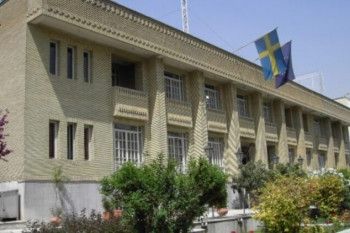
The Swedish temporary chargé d'affaires in Tehran was summoned by the Iranian foreign ministry on Saturday, accused of spreading "baseless and malicious accusations against Iran."
Daniel Stenling, the head of counter intelligence at the Swedish Security Service, revealed at a news conference on Thursday that the plots are proxies for the Iranian government.
The groups have reportedly targeted Israeli interests and Iranian dissidents within Sweden. "The Security Service can now confirm that criminal networks in Sweden are proxies that Iran uses," Stenling stated, supported by news revealed by Israel's intelligence services Thursday of terror plots across Europe including Belgium and Sweden against Jewish and Israeli targets.
Sweden's Foreign Minister Tobias Billstrom said, "It is deeply worrying that a foreign power, in this case Iran, should have used criminal networks to commit or instigate crimes in Sweden."
Iran has held Swedish EU diplomat Johan Floderus hostage since last year, part of its ongoing policy of diplomatic hostage taking, accusing him of espionage.
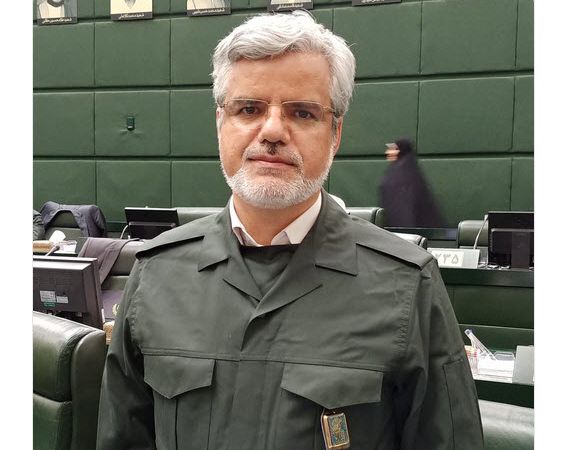
Mahmoud Sadeghi, a ‘reformist’ politician, and former lawmaker who has become known as an outspoken critic of Iran’s Supreme Leader Ali Khamenei's policies, registered for Iran's presidential election on Sunday.
The Guardian Council, however, had earlier disqualified him from running in the 2020 legislative elections, and is unlikely to approve him this time either.
The Council dominated by Khamenei’s conservative loyalists has barred hundreds of regime insiders from running in elections since 2020.
The field of candidates is dominated by conservatives and hardliners. 'Reformists' are still undecided about fielding a candidate, and Sadeghi would hardly be chosen as their main candidate.
Sadeghi, a former Shia cleric, wrote on Twitter in 2021, "The function of reformist and moderate governments is to get the system [regime] out of its crises, then the system will throw them away like a used handkerchief."
So far nearly two dozen politicians have registered, including several hardliners close to the Supreme Leader.
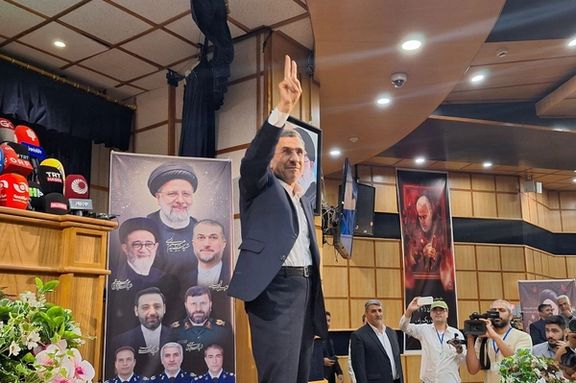
Former Iranian President Mahmoud Ahmadinejad on Sunday registered his candidacy for the June 28 presidential vote, as a steady stream of conservatives and hardliners have joined the fray.
The controversial politician, who has been largely sidelined by the regime's ruling core for nearly a decade, arrived at the Interior Ministry to officially submit his credentials and register for the election.
“Today, I have come to once again greet the people of Iran,” he said as he registered his candidacy.
“The challenges we face today in all spheres are far greater than those of 2013," said the former president, pointing out that the economic hardships of the people have exhausted their patience.
Iran is grappling with soaring food prices amidst economic and social turmoil and the devaluation of the rial compounded by regional tensions. The root cause of this alarming price surge lies in Iran's faltering economy, exacerbated by the continuous devaluation of the Iranian rial. The rial has continuously fallen since the inception of the Islamic Republic in 1979, but it turned into a steep fall in 2018 when the United States withdrew from the JCPOA nuclear deal, demanding its revision. Oil export sanctions and international banking restrictions imposed by the Trump administration badly hurt Iran’s oil-dependent economy.
“My top priority will be to address the economic problems of the people," added the former president.
However, registering as a candidate does not mean that a politician can automatically participate in the election. Iran’s governing system has a powerful watchdog called the Guardian Council that vets all candidates and according to obscure criteria decides whose name can be on the ballot.
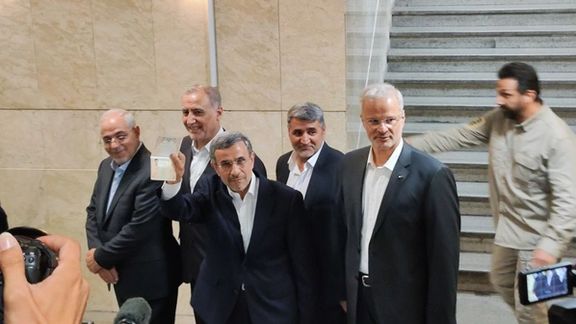
Asked if he thinks he will be permitted by the Guardian Council to run for the presidency, Ahmadinejad kept silent and just smiled, a video of him at the Interior Ministry shows.
The Guardian Council, loyal to Supreme Leader Ali Khamenei barred Ahmadinejad from running in the 2017 and 2021 presidential elections. Following his disqualification in 2017, the hated and loved politician became a vocal critic of the ruling elite’s governance, even going as far as criticizing Supreme Leader Ali Khamenei.
He was not the only well-known figure who was barred from running in mid-2021. Former Parliament Speaker Ali Larijani and former Vice President Es’haq Jahangiri were also barred, opening the path for Ebrahim Raisi to win a low-turnout election as a hardliner candidate.
After Raisi’s victory, Ahmadinejad was apparently put on a short leash and mostly stopped commenting and criticizing. With Raisi’s death in a helicopter crash last month, he came out of the shadows and began commenting about a bright future for Iranians.